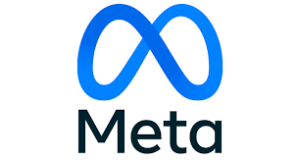What is Keyword Difficulty and how does it affect your rankings?
Keyword difficulty refers to the metric used to measure the amount of effort it would take for content to rank first on search engines for a certain keyword. The higher the keyword difficulty, the more time and effort is needed for you to achieve the desired result.
Does that mean, then, that it’s better to go after keywords that are less difficult?
The truth is not as simple. While difficult keywords do require more effort, oftentimes that effort proves to be worth it. As you plan out your content strategy, make sure that you choose which keywords to target based on both keyword difficulty and search volume. Balance is key when planning out a long-term content strategy.
How Do You Determine Keyword Difficulty?
There are a couple of factors that are considered when determining keyword difficulty. These include:
- Competition
- Domain Authority
- Search Intent
- Content Quality
- Backlink Quality
Let’s go through them one by one.
Competition
When it comes to competition in SEO, there are different types of competitors that you have to take into account: industry competitors (or other companies within the same industry, selling similar products and services) and keyword competitors (which include those who are currently ranking for those keywords, as well as other domains that are creating content for a similar audience).
When considering keyword difficulty you have to take into account just how many people are also trying to rank for that particular keyword. The greater the competition, the greater the difficulty.
Scope out the competition and what kind of content it is they’re writing, and then you can figure out how you can create content that both serves your audience and differentiates yourself from them.
Domain Authority
Building authority online takes a lot of time and effort, especially when your competition is already well-established on search engine ranking pages (SERPs). Tools like SEMRush can help you evaluate where you stand in terms of domain authority, but building authoritative content that increases your score will largely depend on your content strategy.
Domain authority is based on two things: your own authority and your competition’s authority.
If your website is fairly new as compared to your competition (which might be well-established) this brings keyword difficulty to higher levels. It’s an uphill battle to prove to search engines that your content is better than those already ranking at the top spot.
Search Intent
As you’re building your authority, always consider if your content is actually getting clicks and if those clicks result in a higher average time spent on page. You want to make sure that people are actually reading your content. Sometimes low metrics only means that the keyword just isn’t suited for the type of content you’ve published.
The easiest way to evaluate search intent is to type your keyword onto Google and look at what types of content appear in the results. Are they similar to, or aligned with the intent behind your content? Or are they vastly different?
Content Quality
It’s all about quality content. But what is content quality, and how is it determined?
Quality content includes many of the factors mentioned previously. A piece of content should be receiving enough clicks and read for Google to consider it authoritative.
Quality content usually covers a topic in-depth. In fact, many content marketers have attested that long-form content consisting of 3,000 words or more receives more traffic, shares, and backlinks than content that consists of only 1,000 words or less.
Quality content, of course, is also free of grammatical errors and shows a native-level command of the language.
Most of all content quality is determined by the practical value it’s able to give readers. What will your readers take away from reading your blog post or article? Will they come out more informed, enlightened, and empowered? These are some things to consider when creating quality content.
Backlink Quality
Like social shares, backlinks are a good metric to show whether a piece of content is helpful, relevant, and authoritative. However, not all backlinks are equal.
Quality backlinks are those that come from authoritative sources. Backlinks such as these signal to Google that your site is trustworthy and helps build your domain authority.
What that means for keyword difficulty, then, is that if your competitors have strong backlink profiles then it becomes increasingly difficult to try and rank for those same keywords. You can still continue at working on building your own authority over time even as your competitors build theirs.
Ranking for difficult keywords can be taxing and time consuming. And oftentimes business owners don’t have the time and energy to be able to build long term content strategies to suit their SEO needs. But that’s where Get More Traffic can lend a hand. If you’re looking for a partner to help you build your domain authority and rank for difficult keywords, contact the team at Get More Traffic today!













